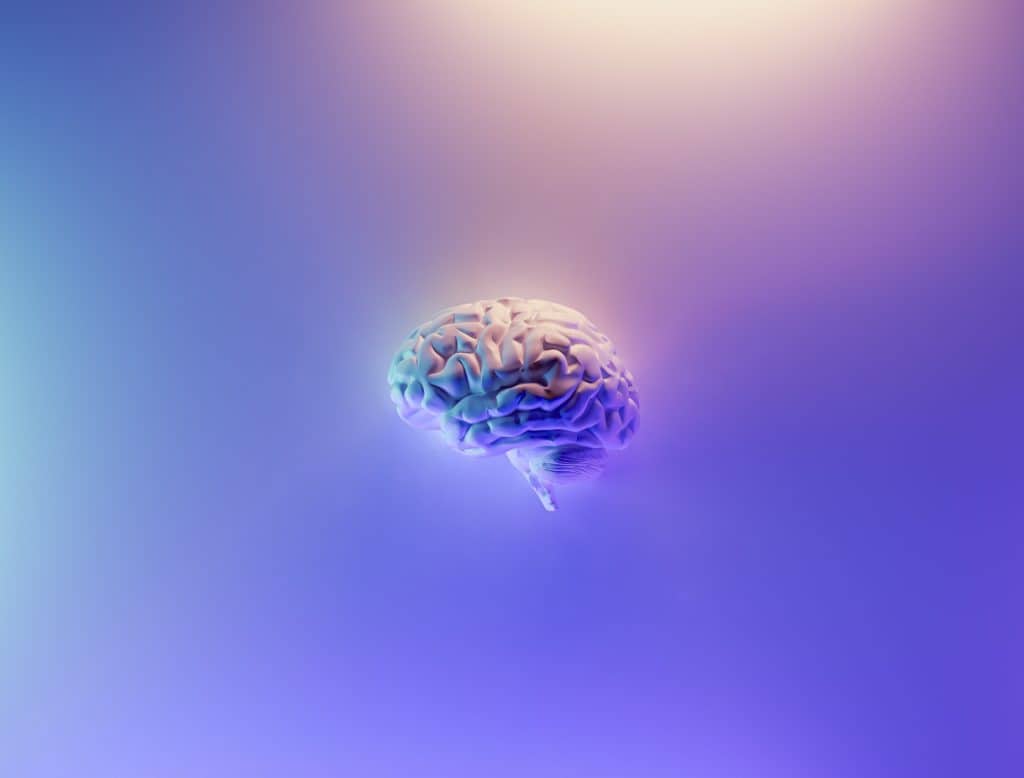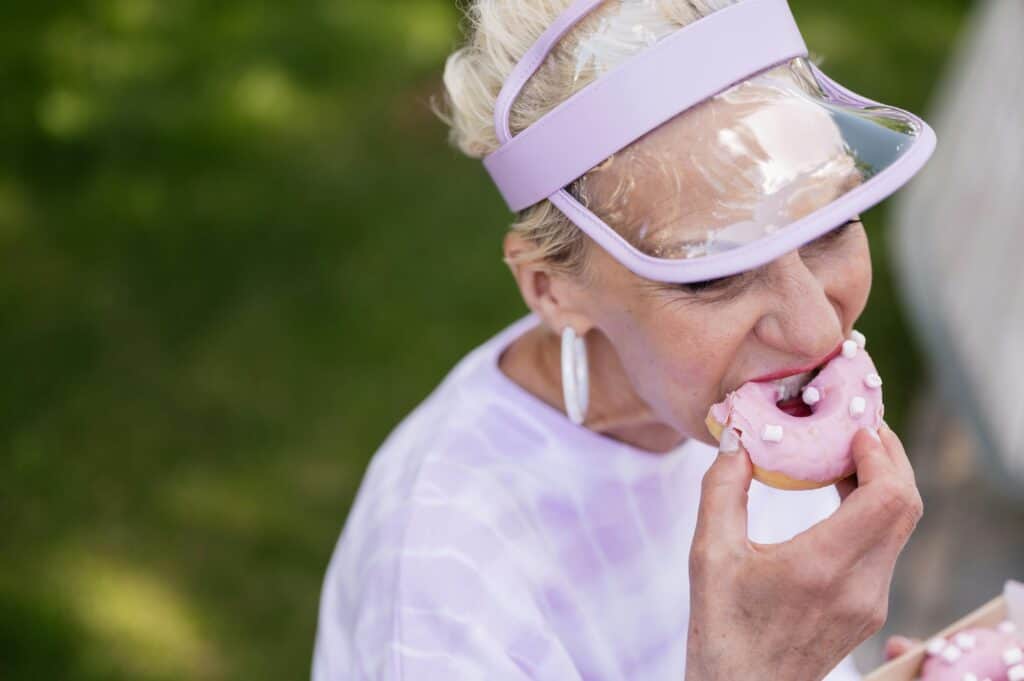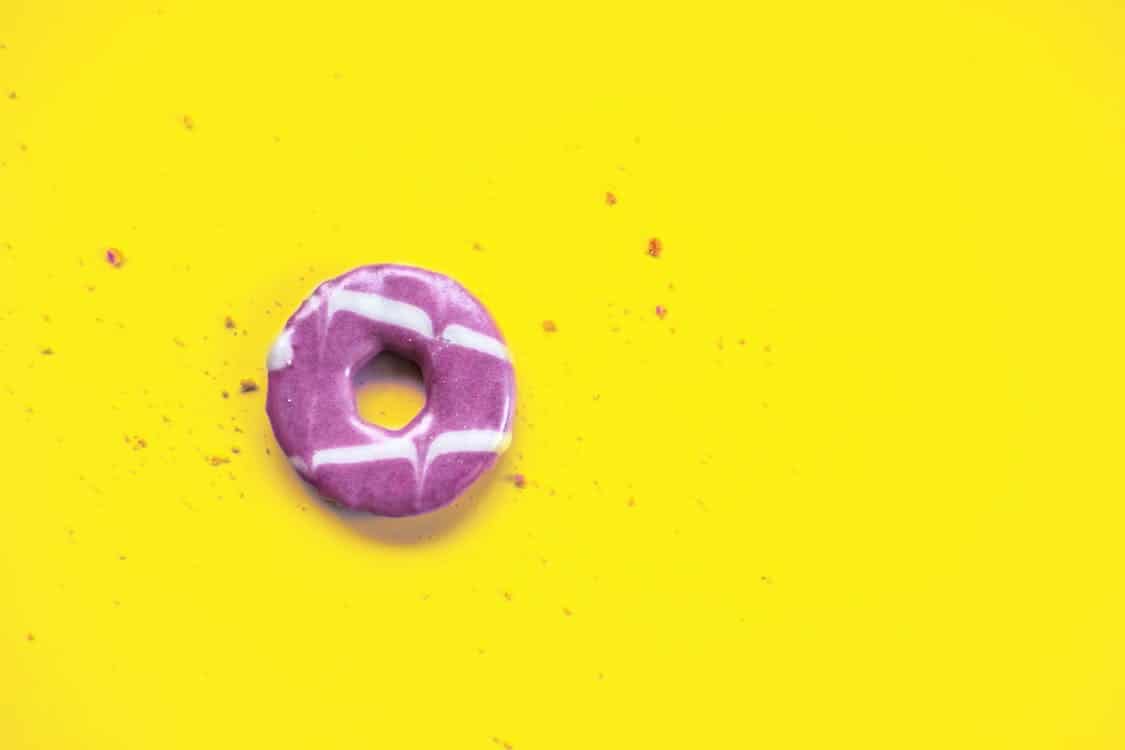If you’re living with, have ever lived with, work with people living with or have someone you care about living with an eating disorder you’ve probably heard the phrase “eating disorders are not a choice”.
Not only would you have heard it you would have experienced it.
But what does “eating disorders are not a choice” actually mean?…
Introducing the Conscious Mind and the Unconscious Mind

There are numerous day-to-day functions which our body does for us.
We don’t have to think about them or coordinate them at all.
In fact, until we specifically draw our attention to them, we are likely unaware that we are even doing them.
Your breathing for example.
Your heartbeat.
Your temperature.
Your blood pressure.
Your weight.
Your digestion.
Your metabolism.
All of these things (plus billions more) your body takes care of behind the scenes without you having to lift a finger or do any tricky calculations (can you imagine even figuring out where to start with any of these let alone coordinating them all 24/7?…)
In fact, your body does all this without you having to do anything.
But the truth is you actually are doing all those things!
You are doing them all every microsecond of your waking life (and sleeping life for many of the examples I’ve given) without you knowing you’re doing anything.
You are doing them all without you knowing how you are doing them or spending any time learning how to do them.
You didn’t even decide that you wanted to do any of them.
If someone asked you how you do any of them you’d probably not be able to really explain it.
How can this be?
How can you be doing something without knowing how to do it?
How can you be doing something without trying to do it?
Because you are not doing them consciously.
You are doing them unconsciously.
They are under the control of your autonomic nervous system.
Another Example of the Unconscious at Work

Have you ever touched something hot?
For example, have you gone to pick up a pot off the stove without realising it was hot?
How quickly did you pull your hand away?
This is another example of our wonderful unconscious at work.
Our unconscious is designed to process information incredibly quickly, much more quickly than our conscious mind.
Which is fantastic because it means all our muscles have coordinated to pull away from the danger and prevent us from more harm before we have even consciously decided that the thing we’ve touched is hot and that we need to pull away.
I find this amazing.
It’s something we know to be true, have many experiences of it across our lives and yet for the most part take completely for granted and never really even think about.
It’s amazing and necessary that our bodies can do this as without it we’d have not made it as far as we have as a species. We’d in all honestly have died out a long time ago.
However, there are pitfalls to having our unconscious mind be so quick and also have different priorities to our conscious mind, survival vs thriving respectively, in that this leaves us vulnerable to being capable of developing some at face value seemingly strange and non-useful or even harmful unconscious processes.
All these unconscious processes that we’ve developed over time are all trying their best to do is meet a need we have (or multiple needs).
Take the person who smokes cigarettes or vapes as an example of a behaviour meeting a need for example. The moment of stress relief achieved through smoking/vaping is evidently harming their bodies and those they love as they do so.
Or the case of the person who drinks alone every evening to make up for the lack of social connection.
Or the person who mindlessly scrolls TikTok/Instagram/Facebook/Insert other social media to reduce their anxiety over what to do with their life, leaving them with less life.
Another example is the person doing an eating disorder.
Eating Disorders are Unconscious

Eating disorders are not a choice because they are as unconscious as your heartrate or how many times you need to go to the bathroom across a day.
You don’t get to decide.
Frustration

So, the question you may now be asking is “why then once someone becomes consciously aware that they have an eating disorder, and they are trying to stop do they not just “stop”?
It is a valid question because at some point the eating disorder behaviours do become things people know they are doing.
It’s no longer brand new and blindsiding them.
The answer is simple and found within the question itself.
Because their conscious might want something better for their life, but their unconscious is still doing the eating disorder stuff.
They might understand what they are doing because those unconscious behaviours have been brought to their conscious awareness, they might understand the logic, the reasoning and have all the reasons in the world to stop but when they go to do something different it “feels” wrong.
It feels wrong at the most fundamental level.
A level where logic and reasoning and all the amazing prowess of conscious mind and our prefrontal cortex do not exist.
This is the most frustrating, shame and guilt producing position I have ever found myself in.
This is the position many people find themselves in – wanting desperately to change, for things to be different but unable to do so.
This is what it means to be “stuck” in every sense of the word.
What I Learnt (The Hard Way)

What I wish I’d known much earlier was that wanting to change is not enough, admitting you have a problem is not half the battle as you may have been told (I was told).
All the battle is in learning how to work with yourself instead of against yourself.
Just because you recognise you have a problem this does not mean, and I cannot stress this enough, that you have the tools and resources to fix that problem.
Just because you might understand what you “should” be doing consciously does not mean that you can do it.
A lot of the time the skills and resources we need to change are not conscious at all.
One hundred percent of the time there are skills and resources we need to recover from an eating disorder and go on to live a full life that are not conscious at all.
It’s like trying to treat your broken foot by putting a plaster cast on your arm.
We can all laugh at the absurdity of that but we’re doing the same thing over and over again with people trying to recover from eating disorders and calling it “treatment”.
In fact, we’re going a step further and blaming them for (their foot) not healing.
And to add more shame and confusion to the mix we are touting two conflicting messages one that the eating disorder is not a choice and two that if they don’t stop doing the eating disorder behaviours, they are being resistant to treatment, will get kicked out of treatment or just aren’t treatable.
We give this regurgitated line over and over “eating disorders are not a choice” and then we go on treating those living with eating disorders exactly as if they are a choice.
The words are little more than lip service at this point.
Largely I don’t believe this is with any malicious intent I just legitimately don’t think a lot of our treatments – while they might recognise the power our unconscious minds have over our behaviours and lives – know how to work with our unconscious minds.
It is my hope that by understanding that eating disorders are not a conscious problem they are an unconscious problem we can change the way people with eating disorders are treated.
It is my hope that we start to use and modalities like clinical hypnotherapy and neurolinguistic programming (NLP) far more often than we currently do in the treatment of eating disorders.
And we can truly start to help people get unstuck and move on with their lives.
Summary

Eating disorders are not a choice.
No one chooses to become sick.
No one chooses to harm their body in the way an eating disorder demands.
No one chooses to die of an eating disorder.
I don’t even truly believe it’s possible to consciously “choose” to harm your body in the way an eating disorder demands.
All the bizarre and creative ways to avoid food my mind came up with when I lived with an eating disorder I know are not possible from the perspective of a healthy mind. I feel that even if I were to sit down and devote time and energy to this task it would genuinely be impossible for me to come up with let alone do all that stuff I used to do.
It was never a choice.
I would be making myself in a way that the more I think about it, it becomes strikingly evident to me that it would be impossible.
When I lived with an eating disorder it wasn’t an effort.
It wasn’t a choice.
It came naturally.
I’ll tell you what was a massive effort though.
To do anything against the eating disorder.
That was pain like I’ve never since or before known pain. Truly, and by no means has my life been pain free after nor before the eating disorder!
There is no way I can adequately capture the absolute horror of what it was like to live with an eating disorder.
Being utterly and hopelessly incapable of meeting one of our most vital and basic human needs is not only terrifying but to have to deal with the misunderstanding and stigma – such as you’ve just got to try harder (ie you’re not trying hard enough), strong people recover (ie you’re weak that you can’t do this), being presented with yet more evidence and scare tactics of the harm you are “doing” to your body (ie if you were smarter you wouldn’t do this) and the list goes on… lumped on top of this it’s a wonder any one does recover to be honest.
It’s even more of a wonder anyone goes on to not just survive but as cliché as it sounds thrive because having lived with an eating disorder and having now worked with thousands of people during their recoveries from eating disorders I can confirm I know well what’s it’s like to be treated as though you have no value.
I know what it’s like to be treated as though you have no dreams, hopes, desires, personality.
I know what it’s like to be treated or rather not treated because no one knows what to do with you.
I know what It’s like to be treated as a lost cause, a waste of time.
I know what it’s like to be treated as much as I hate to admit this as less than human.
I’ve never known any other illness or health concern human beings suffer to be “treated” through, threats, punishment and guilt.
To survive that, to go on and live a whole life functioning in a society made up of human beings of which you have seen the very worst side of all in your toughest hour is nothing short of a miracle.
Should you overcome the eating disorder and go on to live in this world that is amazing and incredible and filled with awe and wonder but also incredibly and unmentionably hard then to me you are a miracle.
The Most Important Bit

If the eating disorder was not a choice.
If the behaviours of the eating disorder are not a choice.
How then do you recover from an eating disorder?…
By recognising a weird truth that even though you are not choosing to do the thoughts, feelings and behaviours you are doing them.
You are just doing them unconsciously.
Therefore, it is entirely a waste of your time to go on telling yourself you just need to try harder because you know what to do (if you did, you’d have done it by now).
Don’t waste any more time looking for blame or trying to shame or guilt yourself out of it (I have NEVER met anyone for who this tactic worked despite everyone I’ve ever worked with applying this tactic to themselves or having had others apply it to them).
What to do then?…
Work with someone who can help you make the changes at the level the eating disorder exists.
Your unconscious mind.
Doesn’t that make sense?
We know it when we talk about the starved, malnourished mind. Many therapists and inpatient centres won’t take people living with eating disorders until their body mass index (BMI) is above a certain level. The justification being their mind isn’t capable of doing the work.
And it’s true.
Their conscious mind isn’t.
We tell people to go away and eat and gain weight and then come back.
Otherwise known as we let people suffer immensely and even die because we don’t know what to do with them.
When we work with the unconscious mind the part of us where the eating disorder exists, we give people a greater chance at change.
A chance at a change that might otherwise be impossible because when I talk about recovered I am not talking about fighting yourself for the rest of your life, I’m not talking about life being hard forever and the eating disorder being something you have to “manage”, I am not talking about simply maintaining weight or some medical stability but at immense psychological suffering.
I’ve lived that.
Many of the people I work with have lived that.
That is not recovered.
Recovered is free.
And free takes change at the unconscious level.
In order for you to live a life outside of the eating disorder easily, fulfilled and happily you must change at the unconscious level.
Change at the unconscious level and then move on with your one (so far as I know) incredible, painful, challenging, fun, exciting, exhausting and entirely precious life.
With my whole heart I hope you found this information useful and inspiring.

Become Great. Live Great.
Bonnie.



